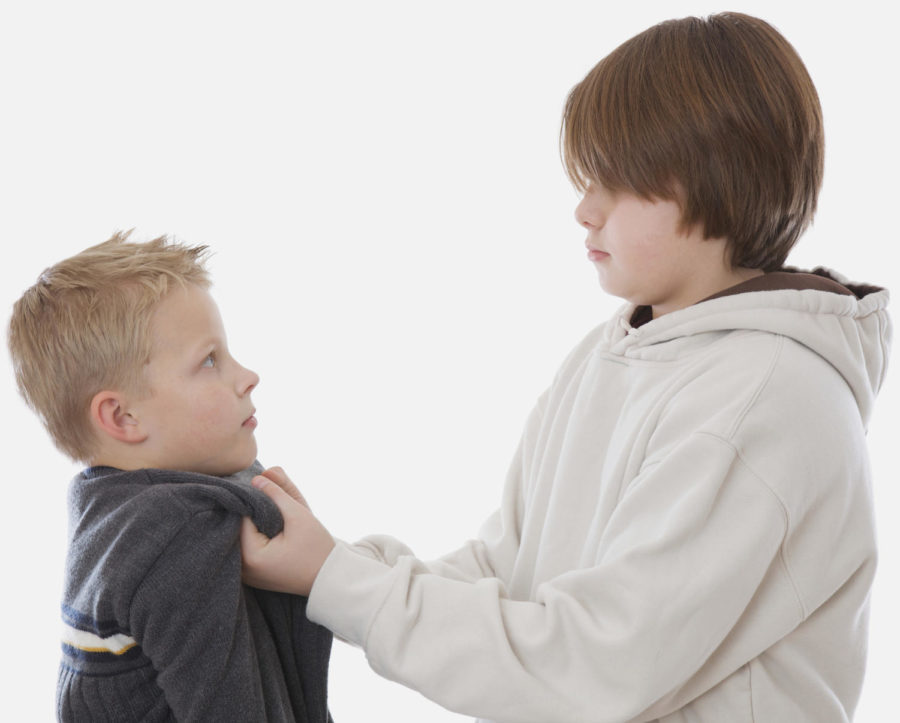Amollo: Bullying problem requires real action, not just talk
Columnist Benson Amollo states that both parents and community members should take more action to prevent children from being bullied.
October 11, 2011
Bullying among kids and teenagers in
schools and sections of our neighborhoods is gaining a prominent
fixture among us in a where-are-we-really-headed fashion than ever.
It must be awkward, as it should be, worrying that our children
find pleasure and/or relief in humiliating the hell out of each
other. It has gotten so worse as to send shivers down the
unexpected spines of those pop idols, such as Lady Gaga. And true,
Gaga recently expressed a strong intent to mount a campaign against
bullying. She went as close to it as attending President Barack
Obama’s fundraising dinner in Los Angeles, in an attempt to catch
the president’s eye for possible deliberations over this blot on
our record.
Lady Gaga’s move speaks of courage
and great resolve to pay attention to a matter that is seemingly
negligible to a political class lost in tearing at its members. But
this society giving up issues of such magnitude to pop celebrities
like Gaga should perplex us in the same way we are worried by what
tips the scales in favor of bullying among teens. Gaga’s anger
comes hot in the heels of the death of 14-year-old Jamey Rodemeyer,
who took his own life. Tired of being pounded and humiliated, the
poor teenager had no better place to look in a society replete with
selfish pursuit, than dwarf the worth of his young life.
Rodemeyer deserved no death of the
variety he got. He instead deserved a shoulder to lean on, to beef
up his confidence in the face of his predicament. But from who? Who
would offer that much needed shoulder? In a society as extravagant
with expectation as this, we have delegated the role of parenting
to children. The American sense of individualism is finding a safe
home in children; we seem to be quietly telling kids to stop
complaining and “man up.” Yet we forget that they are short of the
wily equipment of a tough terrain that we must have accorded
ourselves as we vow to live for ourselves and ourselves
alone.
We need not turn over a haystack to
untangle the spin that depicts the behavior of our children. It is
quite clear that the leadership and adults of this country have
disappointed the children. The kind of fire-brigade response that
child bullying has received is a far cry from what really needs to
be done. The American sense of freedom seems to have hit an ugly
misinterpretation when it comes to children.
Studies continue to offer
gut-wrenching statistics on bullying among children. According to a
1998 government-sanctioned study of 6,500 children in rural South
Carolina, 23 percent of students in grades 4 through 6 had been
bullied “several times” or more, while 20 percent had bullied
others. Similar studies also show that 17 percent of students in
grades 6 through 10 reported having been bullied “sometimes” or
more, with 8 percent being bullied once a week. Nineteen percent
said they had been a bully to others “sometimes” or
more.
As if the statistics and the sense
of urgency that is the fatal end to bullying aren’t enough, all we
have attempted is talk. We’ve seen talk right from the White House.
President Obama has led in simply castigating bullying as if kids
will be conscious enough to toe the line. We have simply ignored
the need for constant engagement on how best to keep bullying in
check. Sociologists have offered some of the reasons for bullying
as the need for power and dominance by the bullies. Bullies also
find satisfaction in causing harm and suffering to others as they
reap their psychological or material rewards.
Talk alone, and failure to summon
the needed courage to face the challenge of child-bullying isn’t
enough. There is wisdom in engaging everyone to offer children all
they need to lead a childlike life: love, close attention, concise
moral counsel and collective vigilance. Communities must create a
strong partnership with centers of learning and government to state
a constant presence in the life of children. Parents must find ways
of staying involved in the lives of their children in ways that
offer them the needed courage to face other children with a loving
discipline and understanding.
These are not easy to achieve. It
will mean both far-reaching investments of money, emotion,
confidence and a serious sustainable resolve. The government must
meet its part of the bargain by ensuring that we have a crop of
teachers who are mindful of the welfare of children while in
school. Such commitment must see teachers in schools equipped with
analytical instincts as to gauge the psychology of their
students.

















